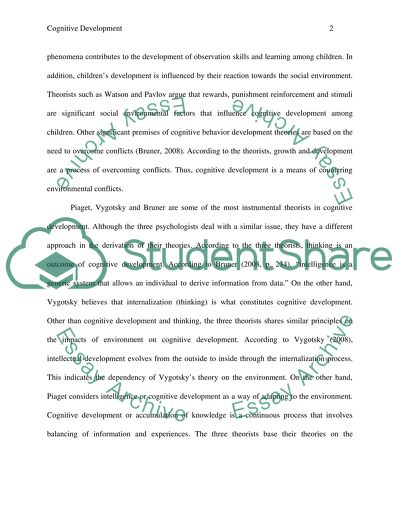Cite this document
(“Cognitive Development Essay Example | Topics and Well Written Essays - 1000 words”, n.d.)
Retrieved de https://studentshare.org/psychology/1454168-cognitive-development
Retrieved de https://studentshare.org/psychology/1454168-cognitive-development
(Cognitive Development Essay Example | Topics and Well Written Essays - 1000 Words)
https://studentshare.org/psychology/1454168-cognitive-development.
https://studentshare.org/psychology/1454168-cognitive-development.
“Cognitive Development Essay Example | Topics and Well Written Essays - 1000 Words”, n.d. https://studentshare.org/psychology/1454168-cognitive-development.


